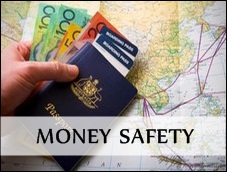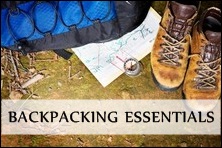Jet Lag Tips

|
|
Most of us travelers have experienced jet lag, more or less. And it's normal to go through this!
When you travel through many time zones (for example from Europe to Laos), you'll probably feel it even more than a traveler coming from Australia or Japan.
There's a lot of advice on this topic, and not every tip suits everybody. So, experiment!
Remember that these tips may be used when returning home as well...
Now... let's get started!
So, how do you prevent it?
Preparations pre-departure:
- Try going to bed earlier than normal a couple of nights. Get a good night's sleep before departure. If you leave in the evening, you can try to take a nap in the afternoon.
If you're too excited on your last night before departure, make sure you have everything ready (your backpack, passport etc.) two days before leaving.
Use your last day to relax and to be with your friends and family. You should try to drink a nice and warm Chamomile tea a couple of hours before bed time. Chamomile has a sedative effect, and I drink it almost every time I have trouble sleeping.
- Drink loads of water to avoid dehydration.
Find out how many hours you're behind or ahead with the Time Zone Converter.
On the airplane:
- Drink more water and eat light meals. You should try to avoid caffeine and alcohol.
- Try to sleep as much as possible - use your ear plugs.
You might try to ask the stewardess if they have an eye mask available. Some airlines provide this for free on long-distance flights, like Cathay Pacific.
- Don't take sleeping pills. Prolonged immobility during your flight can cause fatal blood clots.
Arrival:
- Expose yourself to daylight. But be careful! Getting daylight at the wrong time will make the condition worse.
- If you arrive during the day, don't sleep right away even though you're tired. You need to adjust to local time.
To avoid getting tempted, sit at a café or take a long walk.
On the other hand, don't go crazy on activities which demand concentration and physical attention, like rock-climbing, trekking etc. You have to agree that it's much better to actually recall the things you've experienced during your trip.
- Try to adjust breakfast, lunch and dinner to local time.
- Be patient! It takes time to shake it off.
Jet Lag Symptoms
|
|
Here are the possible symptoms (the symptoms may vary from person to person):
- Disorientation
- Irregular sleep patterns
- Insomnia
- You may awake early in the morning
- Drowsiness
- Lack of energy
- Irritability
- Anxiety
- Loss of concentration
- Confusion
- Coordination problems
- Memory problems
- You generally feel unwell
- Loss of or changes of appetite (like your eating pattern not matching local time)
- Stomach-aches
- Constipation
- Diarrhea (remember to drink loads of water because of dehydration!)
- Nausea
- Headaches
- Sweating
Recognize the symptoms?
Most of us have gone through these symptoms.
If jetlagged, you will experience many of these symptoms.
I've personally been through 19 of the 20 symptoms listed and it wasn't exactly a piece of cake to handle. Usually the symptoms will last for a couple of days (or even weeks). It took me about 3 weeks to recover when I returned home, probably because I didn't know how to cope with it. And to be honest: I was lazy and just didn't care about night and day - I like staying up all night ...so much for adjusting..
Note: Watch out when booking a ticket - you don't want to go to work or school right away when you're jet lagged. Make sure you calculate enough time for a recovery period.
|
Further reading: |
Like this page?
|
Follow This Site
Search this site
Most popular articles
» Travel Forum: Itineraries
» Travel Insurance
» Nightlife in Kuala Lumpur
» Route Planner
» Packing List
» Life After Backpacking
» Kuala Lumpur Malaysia
» Perhentians Malaysia
» Review of massage in Kerala
» Review of Erawan waterfalls/
Connect with us







Comment this page:
Have your say about what you just read! Leave me a comment in the box below.